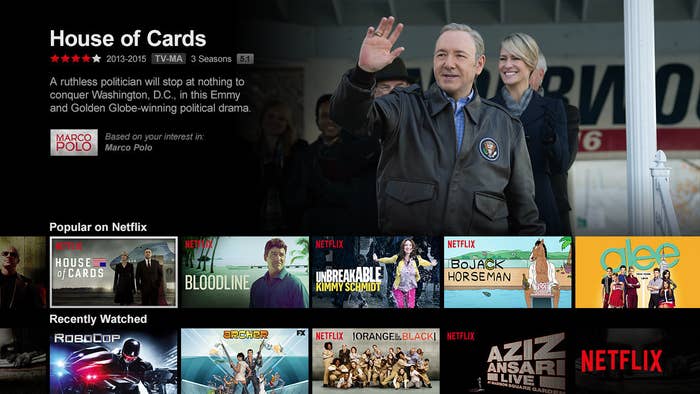
A federal appeals court has ruled that Netflix is not to blame if you choose to share your log-in with family and friends — only to end up embarrassed by being exposed as a closeted Sister Wives fan.
In a class-action lawsuit brought against the video-streaming giant, plaintiffs alleged Netflix had violated a law known as the Video Privacy Protection Act by not hiding what you choose to watch from others using your account.
But three judges in the U.S. District Court of Appeals for the 9th Circuit of California decided against the plaintiffs on Friday, ruling Netflix wasn't violating the law and can't be blamed for subscribers sharing their account with others.
"The lawfulness of this disclosure cannot depend on circumstances outside of Netflix’s control," Judge Raymond J. Dearie wrote.
The Video Privacy Protection Act was enacted by Congress in 1988 after a newspaper printed a list of videos that then–Supreme Court nominee Robert Bork had rented from a Washington, D.C., video store. The law forbids video stores from knowingly disclosing information on customers to any person.
However, the court found Netflix's "Recently Watched" queue was within the law because it allows for video providers to share a subscriber's rental history directly to the consumer.
"This is plainly a disclosure 'to the consumer' as contemplated by the VPPA," Dearie wrote. "When Netflix displays a subscriber’s queue, viewing history, or recommendation lists in her online account, that is a disclosure directly to the consumer."
In 2010, Netflix settled a class-action lawsuit brought by customers angry that it had shared their viewing history with third-party tech workers who had been participating in a contest to improve the company's suggestion algorithms.
"We've had very productive discussions centered on our commitment to protecting our members' privacy," Chief Product Officer at Netflix Neil Hunt said at the time.
A Netflix spokesperson told BuzzFeed News it had no comment on the company's legal victory last week. Wolf Haldenstein, the law firm that represented the plaintiffs, did not return a request for comment.

